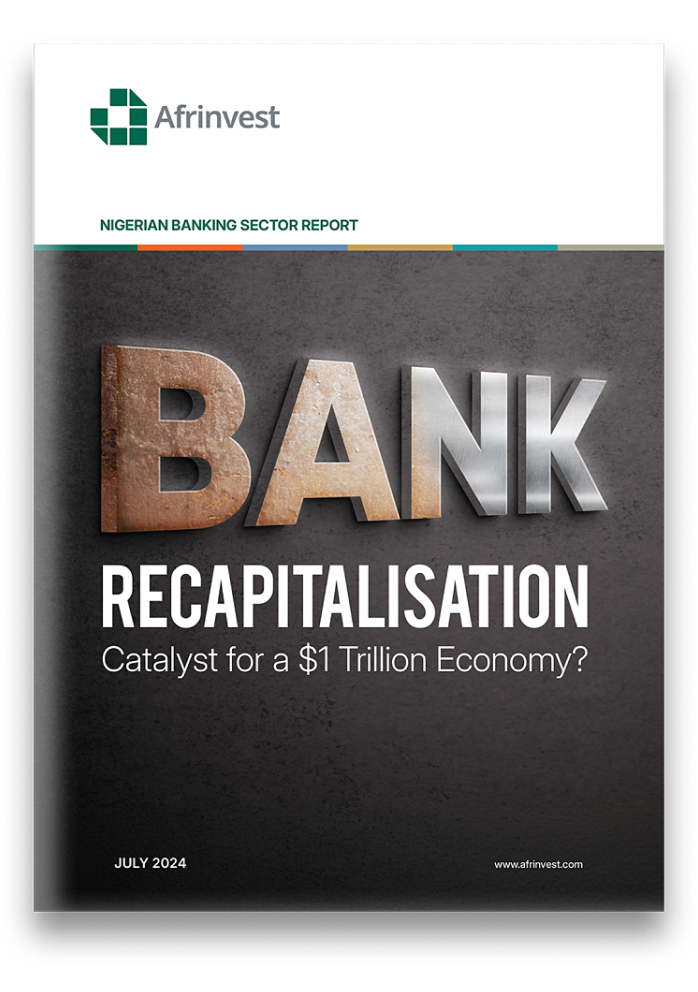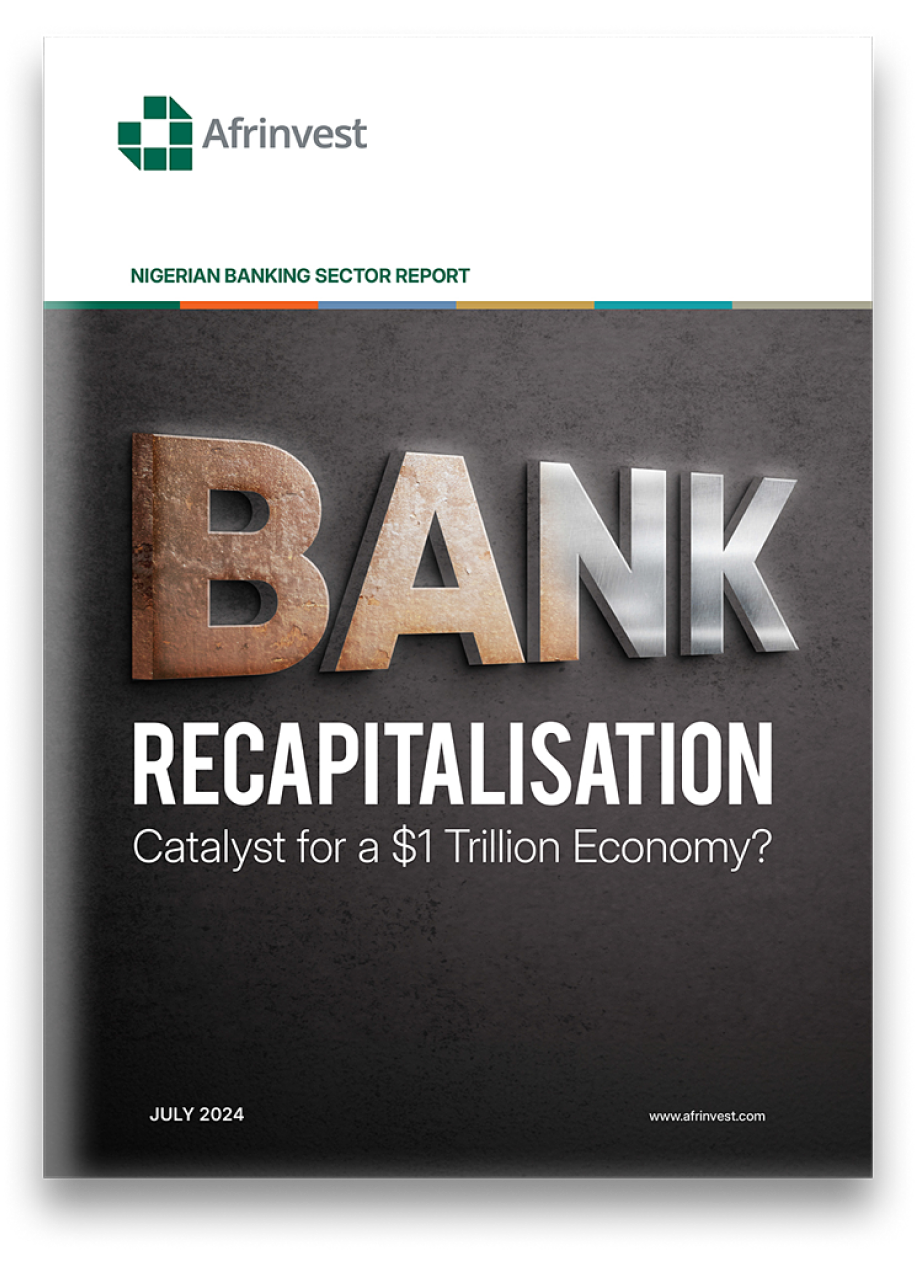






2024 NIGERIAN
BANKING SECTOR
REPORT 2024 NIGERIAN BANKING SECTOR
REPORT
Dive deep as we unravel the geopolitical and economic trends that are shaping the global financial landscape, the impact of global economic risks and domestic policy reforms on the Nigerians and the banking sector, and the pursuit of recapitalising the deposit money banks to support the one-trillion-dollar economy target of the federal government.
Report Highlights
- Global Economic and Monetary Policy Review & Outlook
- Global Banking Sector Performance Review & Outlook
- Domestic Macroeconomic Review & Outlook
- Monetary Policy Review & Outlook
- Financial Sector Regulatory Environment Review & Outlook
- Recapitalisation… Catalyst for a One-trillion Dollar Economy?
- Let’s Go Down Memory Lane… The Need for 2004/2005 and 2010 Banking Recapitalisation
- How Banks Have Fared vs Capital Benchmark… The Birth of a Fresh Banking Recapitalisation Exercise
- Banking Recapitalisation as a Driver of the $1.0tn Economy Ambition… Lessons from Indonesia
- Banking in Post-Recapitalisation Period… A Potent Arsenal for Driving Infrastructural Development?
REPORT SUMMARY
SUMMARY: BANKING
SECTOR
PERFORMANCE IN
2023 AND H1:2024
The Nigerian banking sector has witnessed several recapitalisation episodes in a bid to shore up minimum capital required to compete locally and globally. The 2004/2005 banking recapitalisation exercise was a remarkable episode which cleansed the sector and was awash with consolidation and takeovers that reduced operational banks from 89 to 25. While the cleansing addressed the corporate governance deficiencies and brought the necessary financial stability, technological innovations, international competitiveness and reputation, it had its flaws. The exercise pumped in excess capital, most of which created unhealthy loans and persistently increasing non-performing loans and birthed more risk management issues. These laybacks resulted in the repeal of universal banking model, establishment of AMCON, and the revised capital requirement in 2010.
Recently, in its March 2024 capital requirement guideline, the CBN announced a new capital structure for banks under different licenses with the aim of strengthening the financial system and aiding the government’s $1.0tn economy by 2032. Away from the agenda, this became pertinent following the clear erosion of banks’ capital buffer post- 2010 from a real and FX perspective compared to 2010 levels. Using 2023 average, the existing minimum capital size has lost 77.1% and 76.5% in FX and real terms, respectively. To shore up the capital gap, the CBN considered the impact of macro-economic headwinds on banks’ risk profile and financial position in defining the new threshold. While these criteria appear robust, the new capital threshold may not stand the test of time should there be unprecedented macroeconomic shocks. To bring this to perspective, a revision of the new capital to projected FX-base (average of ₦1,200/$) signals a 16.7% erosion in capital level. This begs the question of its adequacy considering the need for banks to remain internationally competitive and own a robust balance sheet to efficiently play the intermediation role in the $1.0tn game plan.
GET YOUR
BANKING
SECTOR
REPORT
2024
For more information and further inquiries, kindly write to @ or @
© 2024 Afrinvest. RC 1622382. All Rights Reserved.
